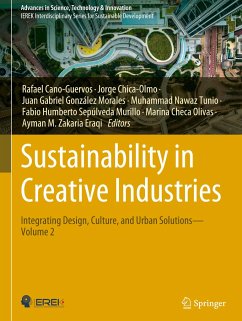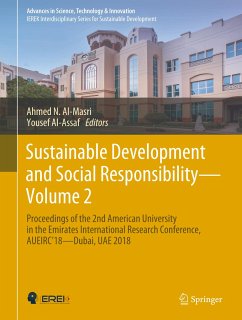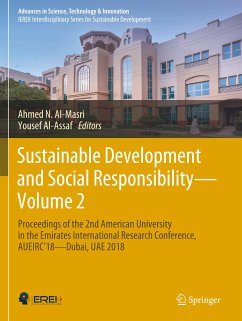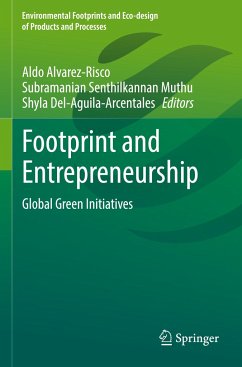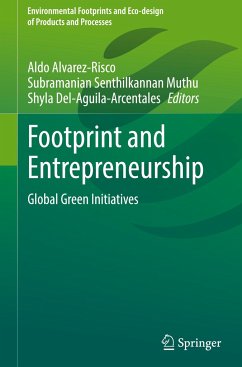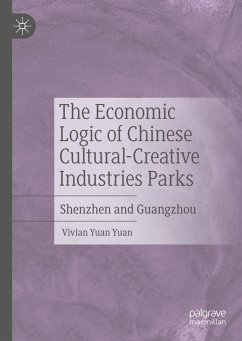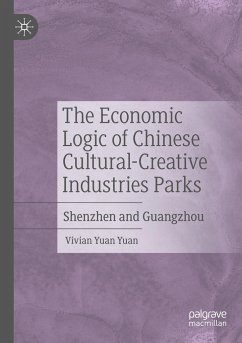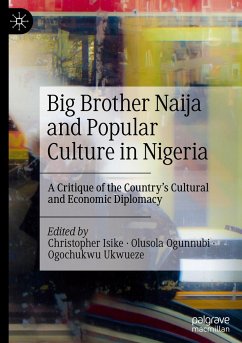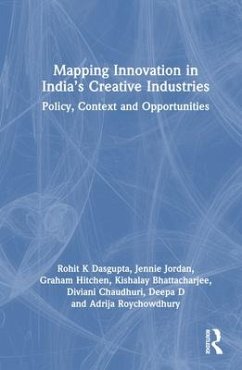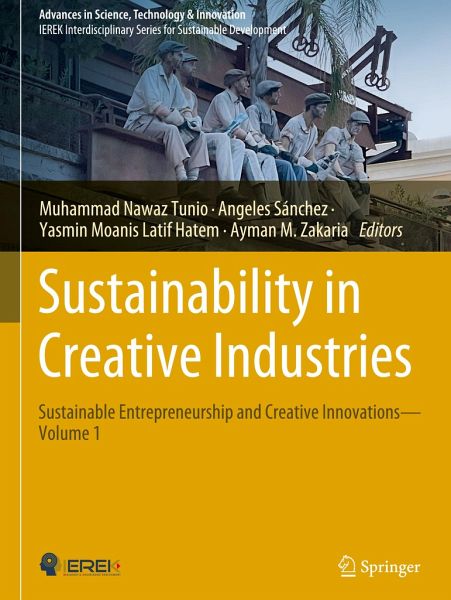
Sustainability in Creative Industries
Sustainable Entrepreneurship and Creative Innovations-Volume 1
Herausgegeben: Tunio, Muhammad Nawaz; Sánchez, Angeles; Hatem, Yasmin Moanis Latif; Zakaria, Ayman M.

PAYBACK Punkte
68 °P sammeln!
This book discusses a compelling array of topics at the intersection of entrepreneurship, education, and technological innovation within the creative industries. It delves into a captivating exploration of sustainable entrepreneurship in Part 1, where key characteristics of sustainable entrepreneurs and factors influencing entrepreneurial intention are dissected. By unearthing the nexus between entrepreneurial alertness, networking capability, and venture performance, it provides intriguing insights into sustaining traditional crafts and brands amid the COVID-19 pandemic. The following parts n...
This book discusses a compelling array of topics at the intersection of entrepreneurship, education, and technological innovation within the creative industries. It delves into a captivating exploration of sustainable entrepreneurship in Part 1, where key characteristics of sustainable entrepreneurs and factors influencing entrepreneurial intention are dissected. By unearthing the nexus between entrepreneurial alertness, networking capability, and venture performance, it provides intriguing insights into sustaining traditional crafts and brands amid the COVID-19 pandemic. The following parts not only unveil current innovative pedagogical strategies in creative design education but propels you into the future, exploring the harmonious fusion of academia and industry in sustainability-driven programs.
Designed for educators, students, researchers, and practitioners in entrepreneurship, design, and technology fields, this book offers a transformative journey into sustainable practices, innovative pedagogies, and cutting-edge advancements. Engaging, informative, and thought-provoking, it is a must-read for those seeking to shape the future of creative industries through entrepreneurship, education, and innovation.
Designed for educators, students, researchers, and practitioners in entrepreneurship, design, and technology fields, this book offers a transformative journey into sustainable practices, innovative pedagogies, and cutting-edge advancements. Engaging, informative, and thought-provoking, it is a must-read for those seeking to shape the future of creative industries through entrepreneurship, education, and innovation.




